The fashion industry loves a brand that is unique, authentic and has a refreshingly different approach to the way it promotes itself to its customers. The dynamic husband and wife team, Bianca and Khaya Sibiya, deliver all of this and so much more with their uber-trendy Punk and Ivy clothing brand.
LoA chatted to Punk and Ivy co-founder, Bianca Sibiya, on a beautiful Johannesburg weekend, sat outside the wonderful Punk and Ivy motique.
"Collaboration is the future of just about any industry sector here in Africa. Storytelling is also key, telling the back story of each product that is designed and produced using these amazing traditional crafts and craftsmanship in Africa."
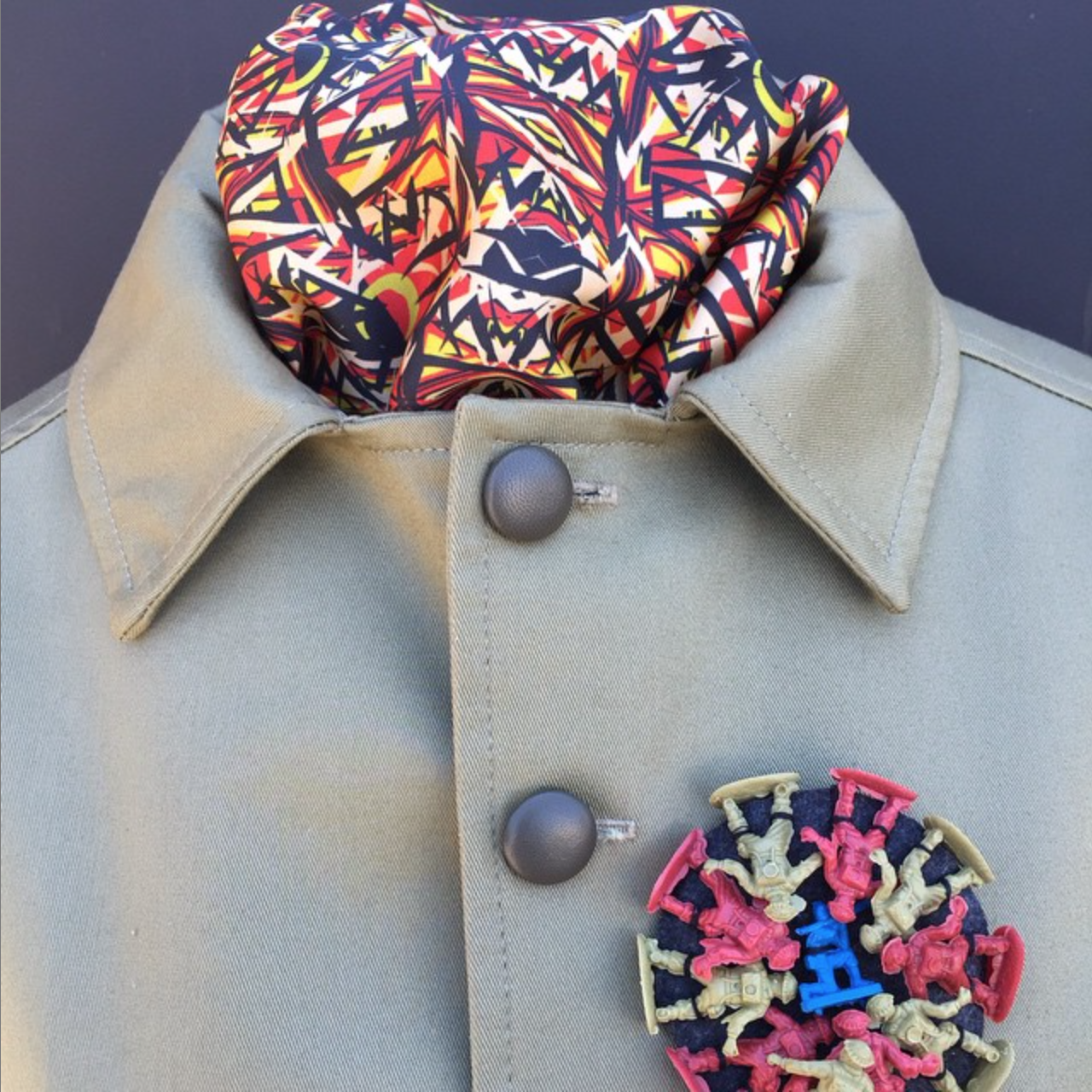
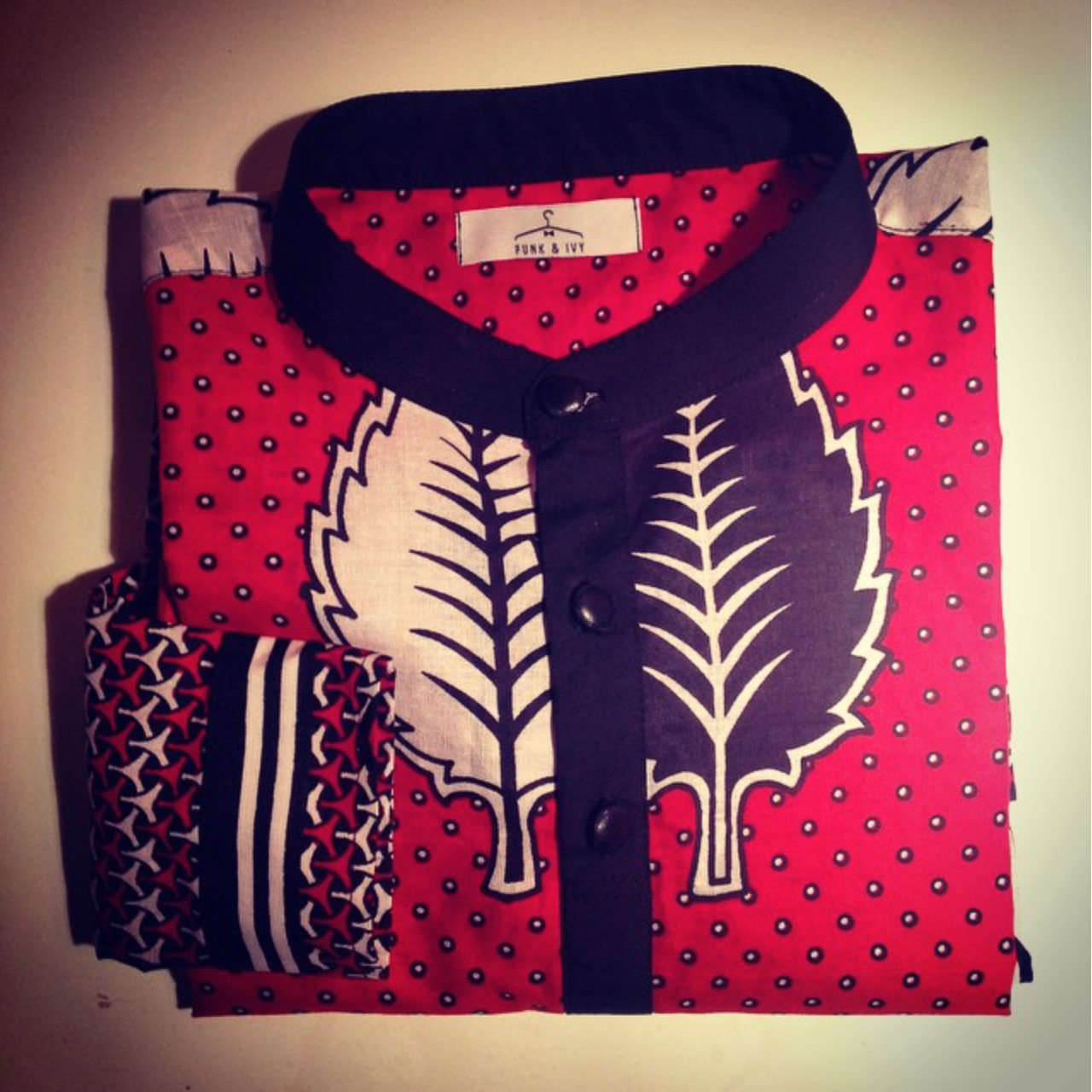
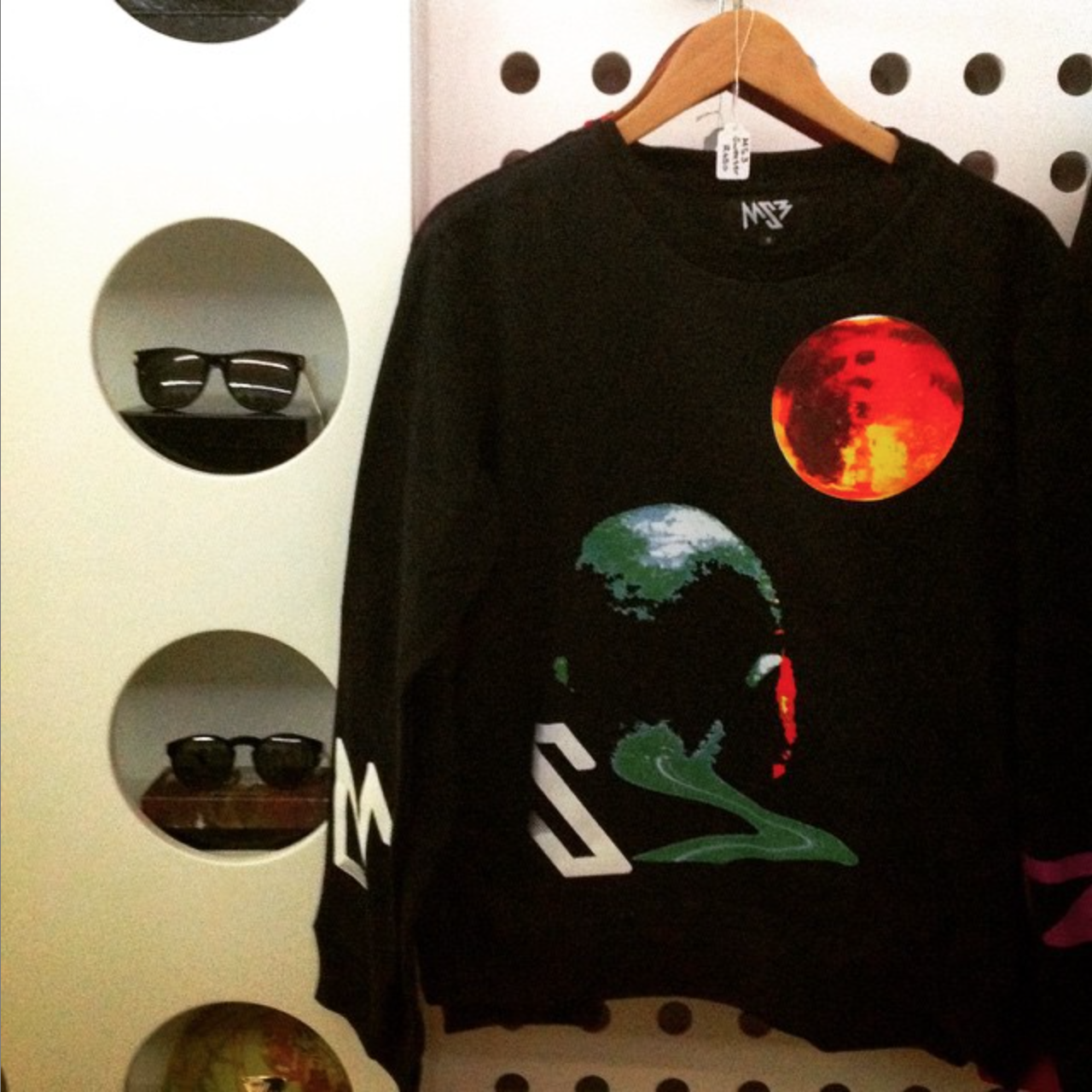
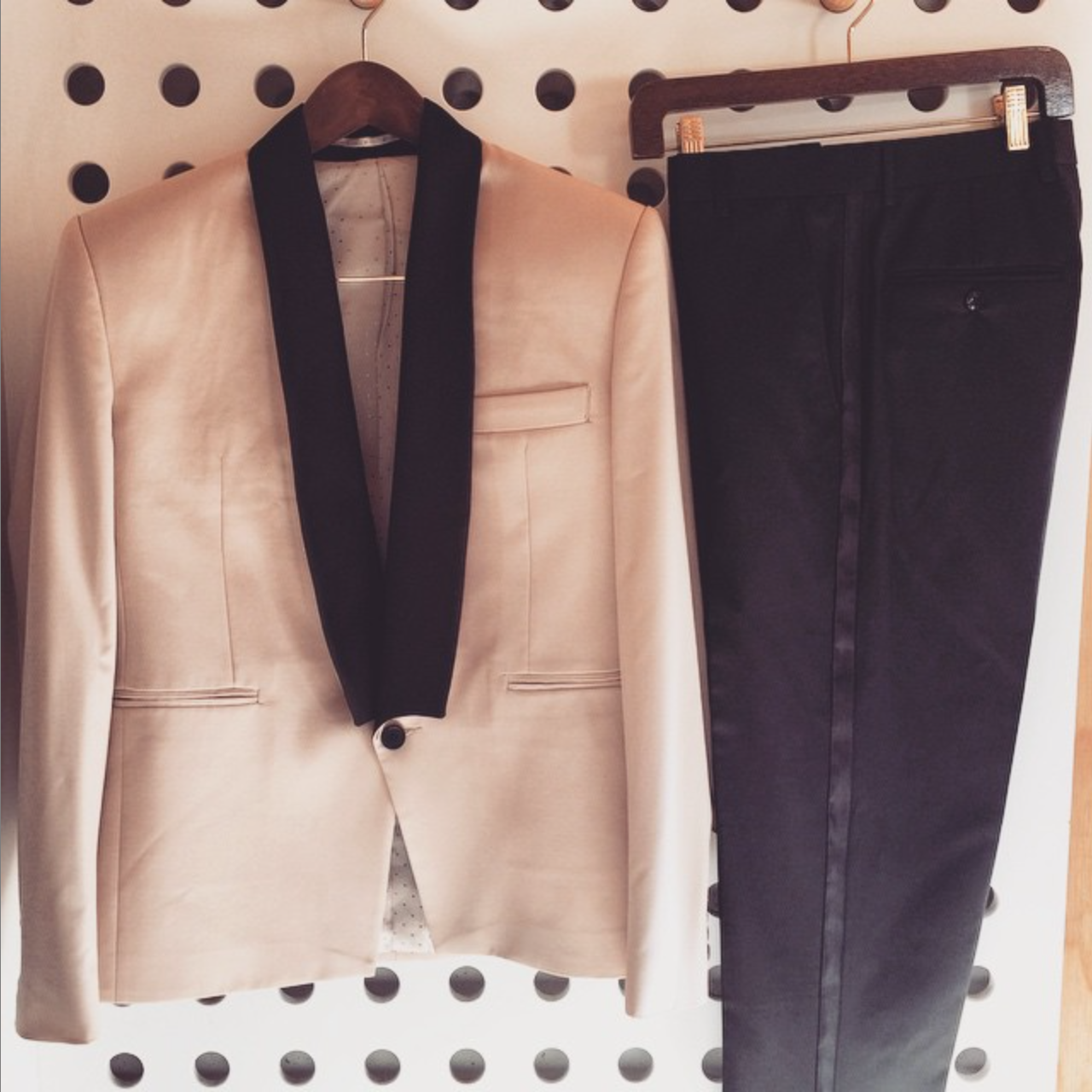
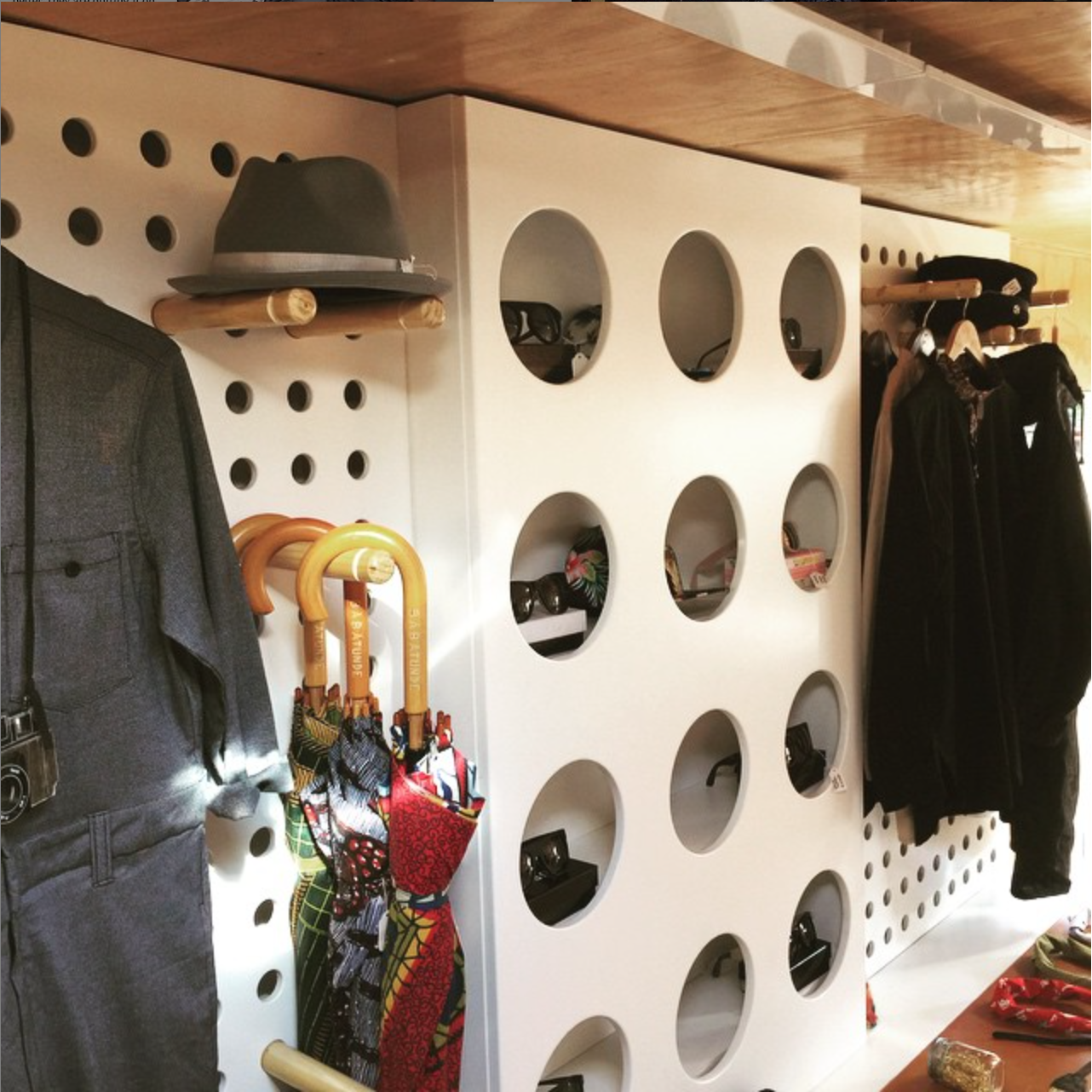
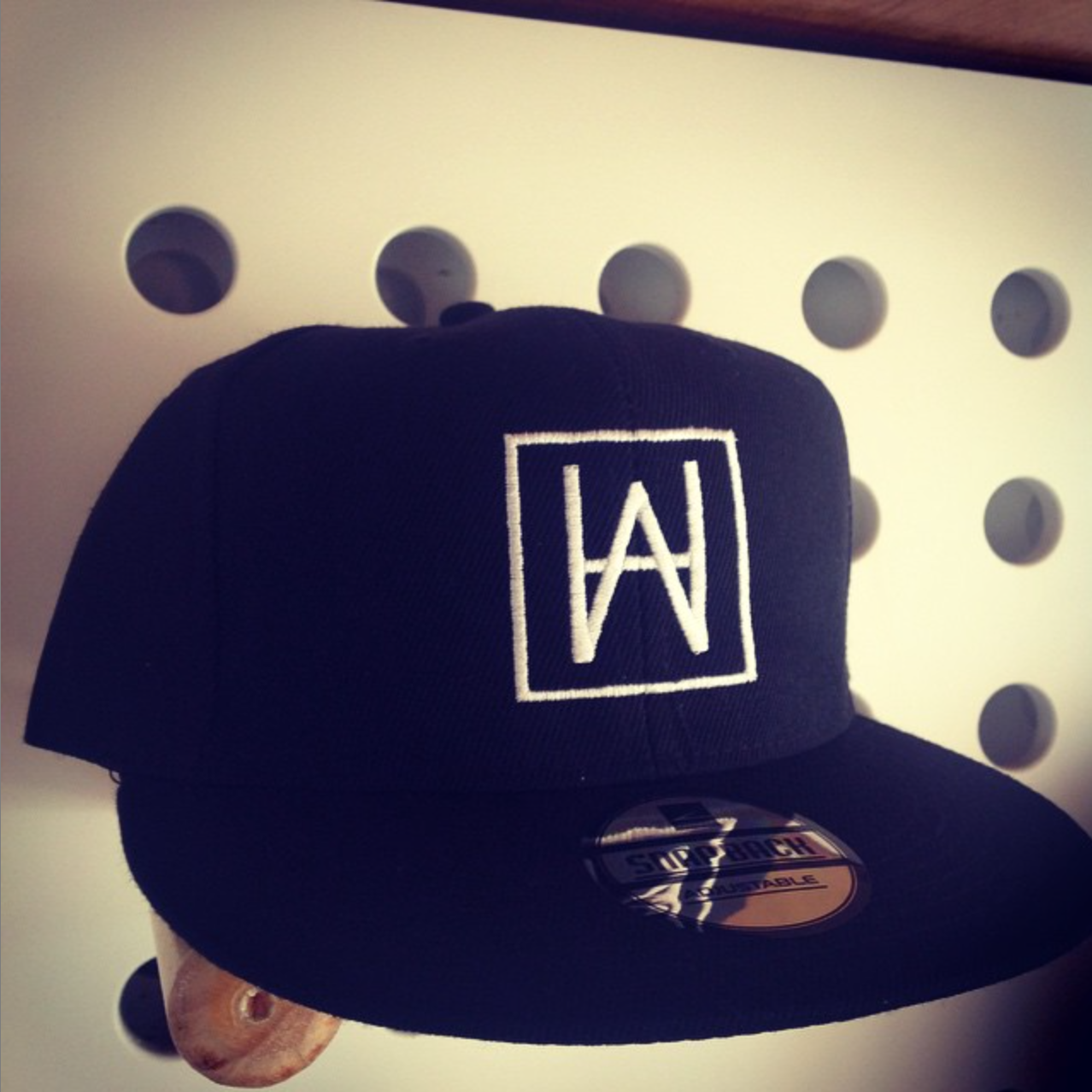
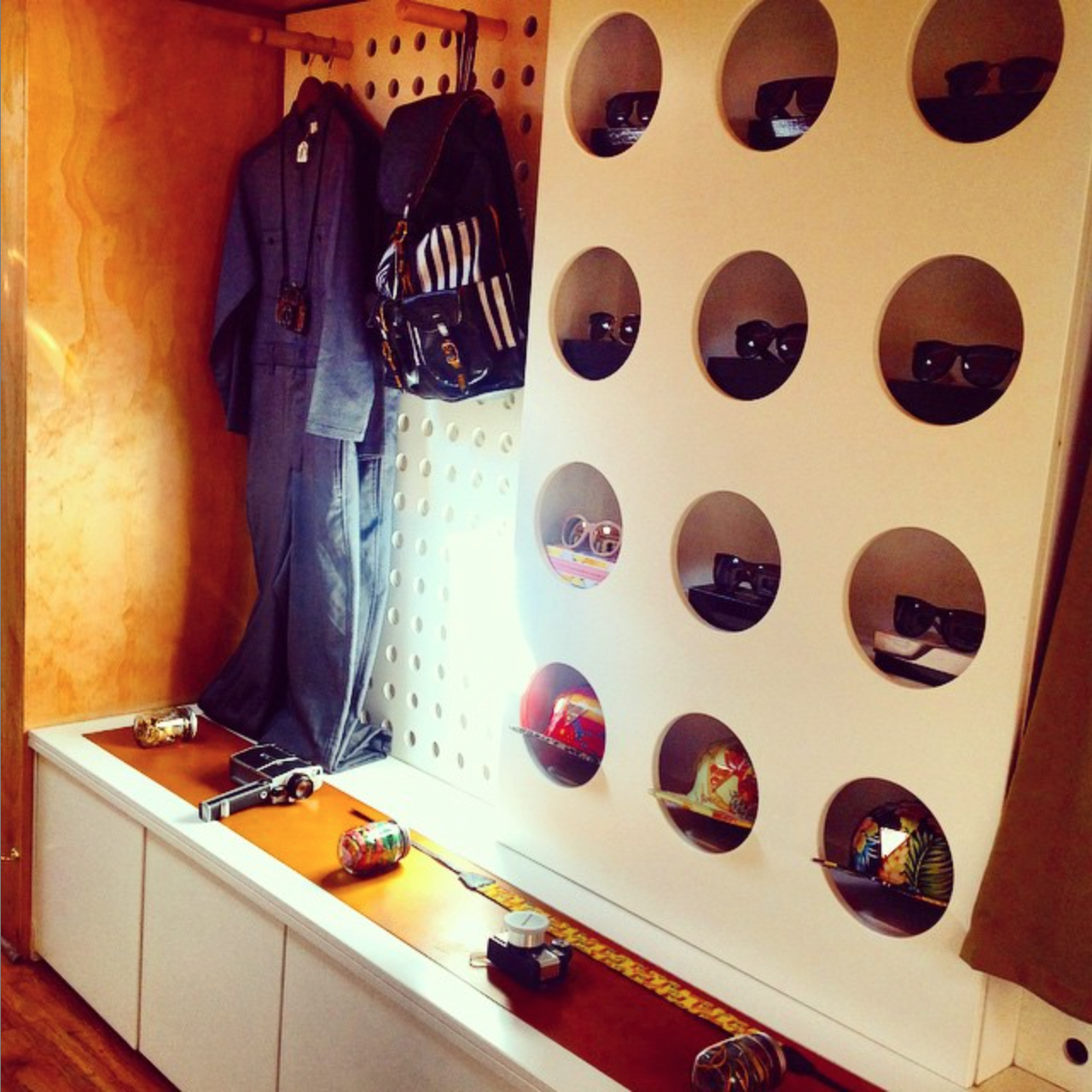
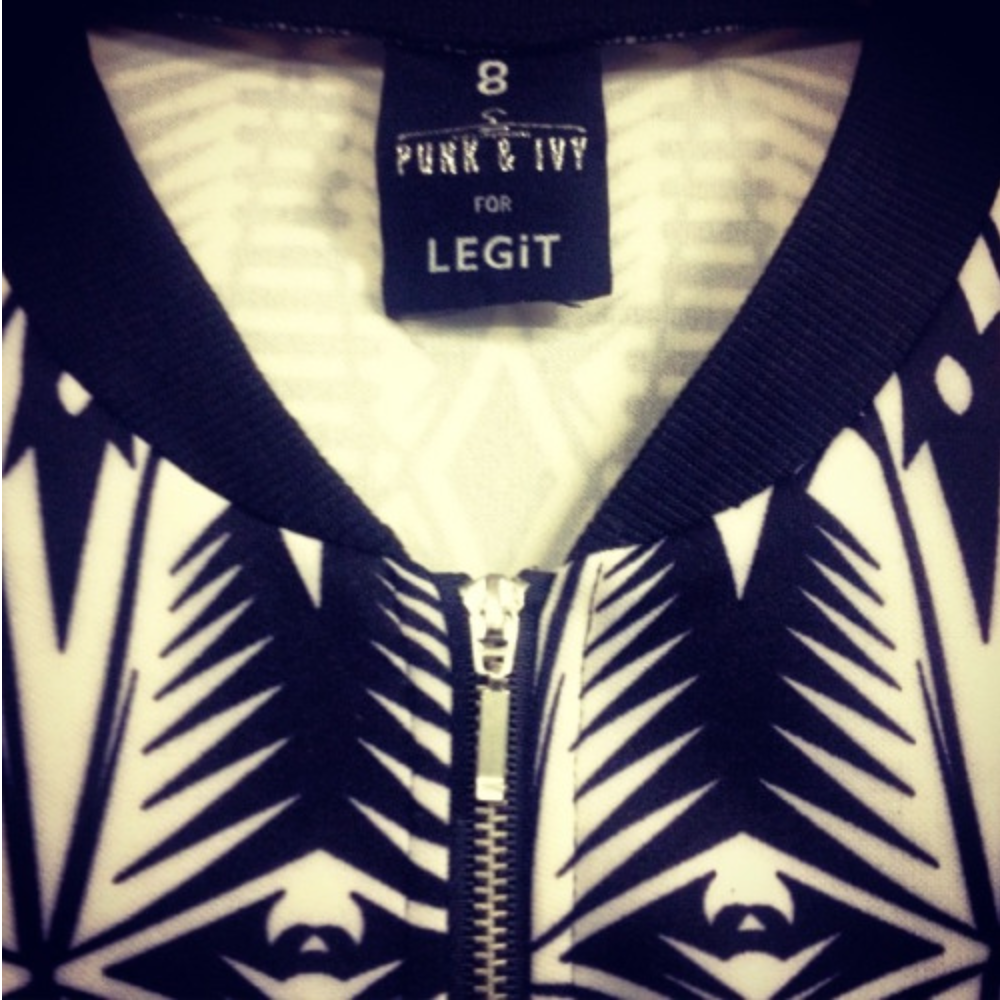
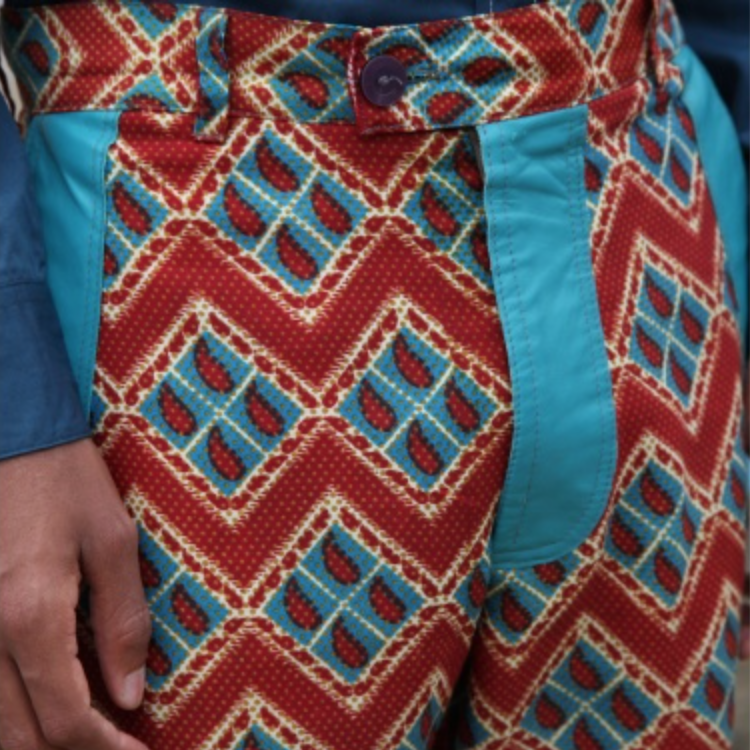
How did your entrepreneurial journey first start?
The starting point for Punk and Ivy was in 2012 when I took a trip with my husband Khaya to Thailand. We felt we needed a break and to get away for a while, and at the time I was working at MTV Networks in South Africa as a Marketing Manager for the African continent, doing a lot of events and positioning for the channel. It was a lot of fun and I got to learn so much about the continent and how to work with brands as a result of that experience. Yet I felt I needed to decide what I wanted to do with the rest of my life. I always knew that at some point I would want to start a business and be an entrepreneur, but at the time I wasn't exactly sure what type of business I would go into, or how my own entrepreneurial journey would start. So, I did a junior MBA at Wits Business School, here in South Africa, knowing that at sometime I would be able to use it practically. So, when we were in Thailand, one of the things that really stood out for me was that the retail environment was not stuck in a 9-5 routine like it was in South Africa, instead it was 24/7. Another key thing that struck me was that the level of entrepreneurship in Thailand was significant - they have the highest level of entrepreneurship in the world there, and they have the lowest unemployment rates. It also fascinated me that so many of the entrepreneurs that I met there were under the age of 24, and most of them were women, many of them running not one but two or three businesses simultaneously. When I came back to South Africa, I realised that we needed to create a solution for ourselves that firstly would enable us to build a brand, and then secondly would enable us to create something as an expression of our African-ness to the rest of the world.
Where did your interest in fashion come from?
Fashion has always been a big thing for me and was always part of my periphery as a child, with my mother being a big influence on my exposure to fashion with her being so well travelled. My interest in fashion as the stimulus for a business came from both my husband Khaya and myself. My husband is a full-time stylist, working on a lot of television commercials and magazines, and has always been in the fashion space, much of the time working with retail companies. I started working as a freelance stylist upon leaving my career at MTV, and in between all the styling I started receiving requests from individuals I met who would say, “I really like what you are wearing, can you make me something similar”. So, basically I was a walking advert for the clothes we were designing together as a couple. At the time we were using the services of tailors in Johannesburg, many of whom were originally from the Congo, Uganda and Ghana, all over Africa. We started out by making one-off pieces and then we took the decision to start promoting them on social media channels, and very quickly people started to take interest in what we were designing and producing. In the space of around six months, our label Punk and Ivy was formed, originally as an online fashion retail design concept, with us promoting our designs through Facebook and Twitter - Instagram wasn't really big at the time. We then took the decision to formalise a company and work specifically on designing and producing bespoke garments. For me, that made a lot of sense as it allowed us to use the limited time that we had most effectively. So the bespoke approach worked in the early days - clients would pay their deposit for a piece to be designed and made, we would make up the piece, the client would try it on and we would make the final changes required, and we would handover the final bespoke piece.
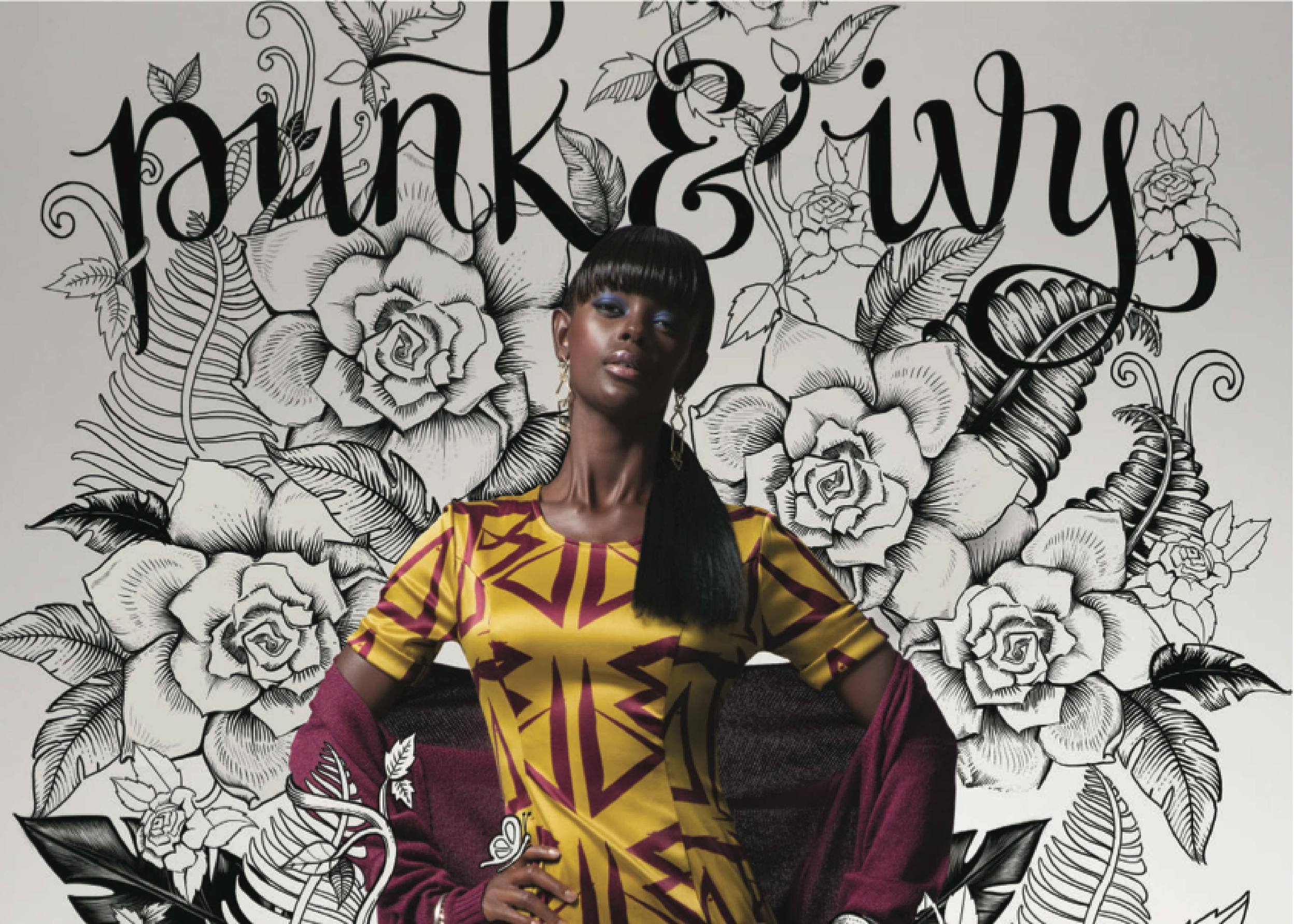
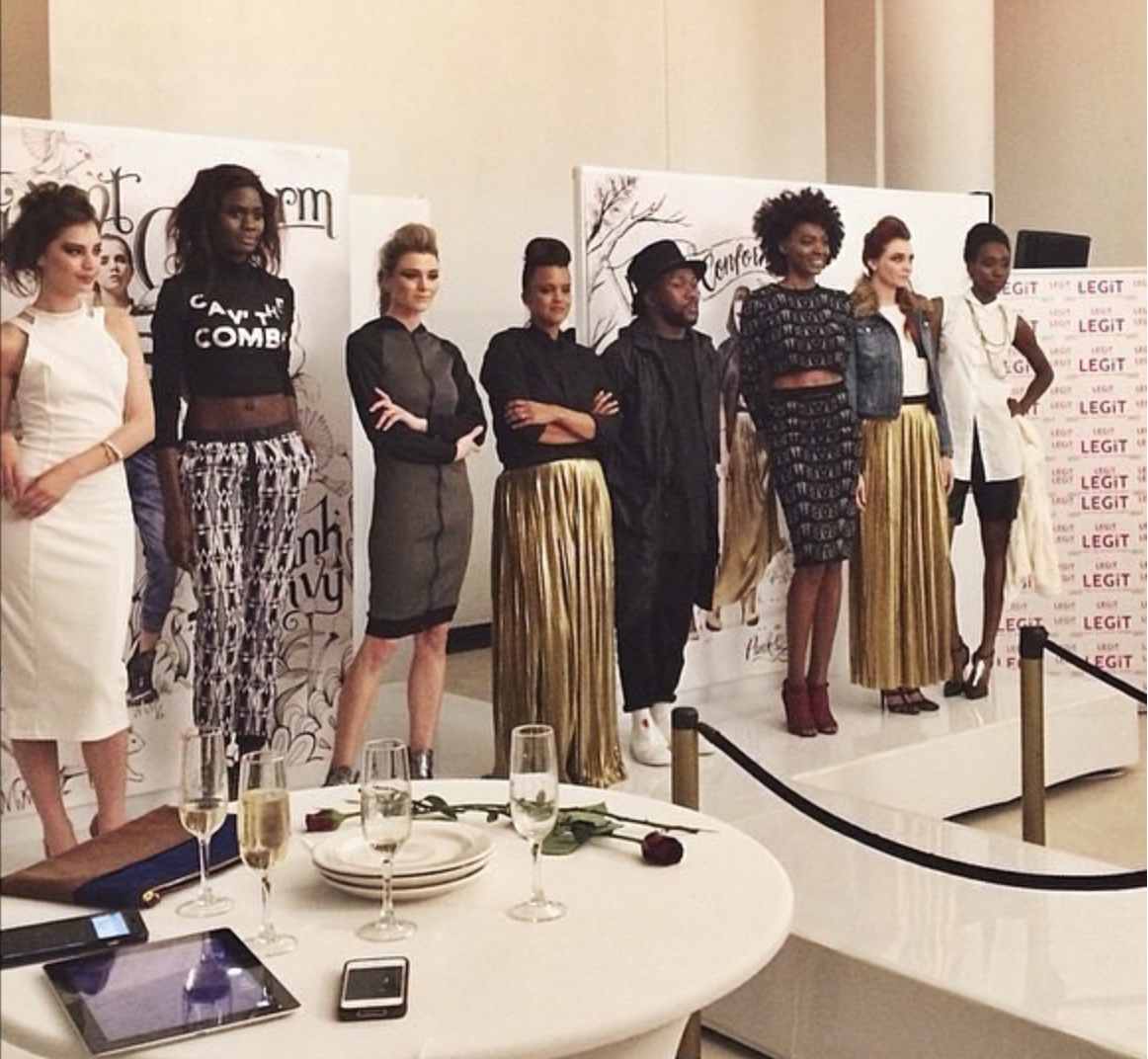
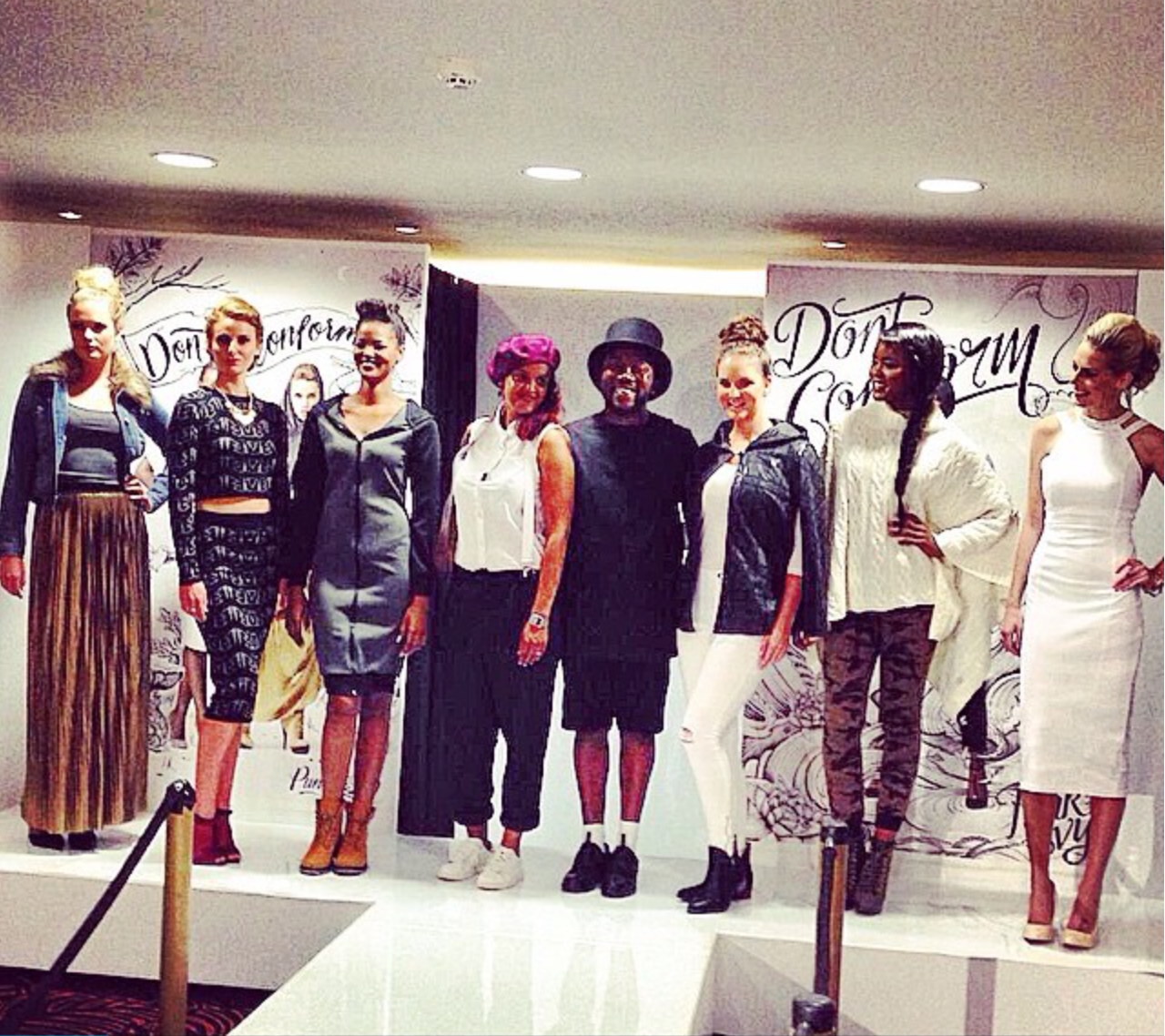
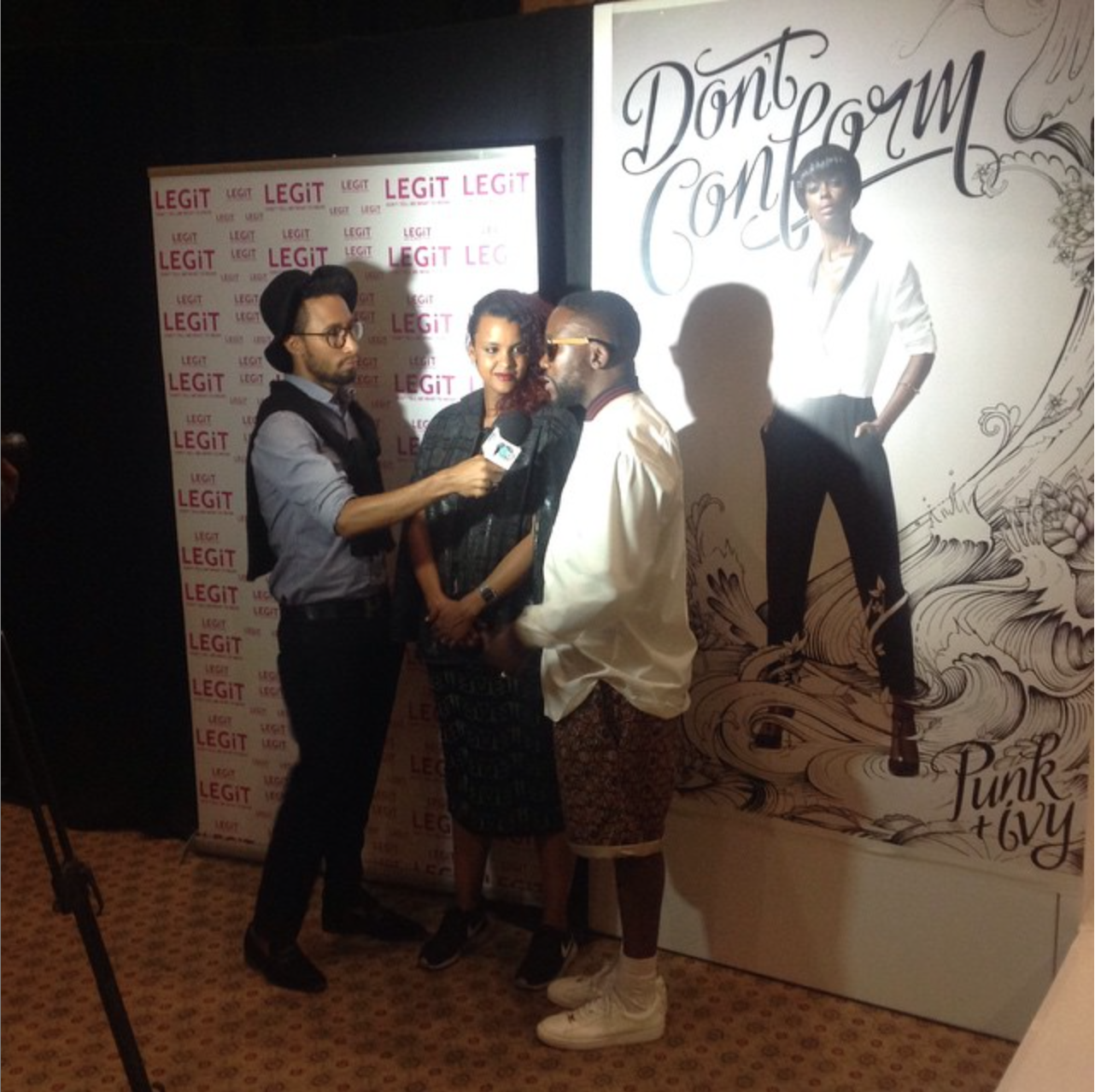

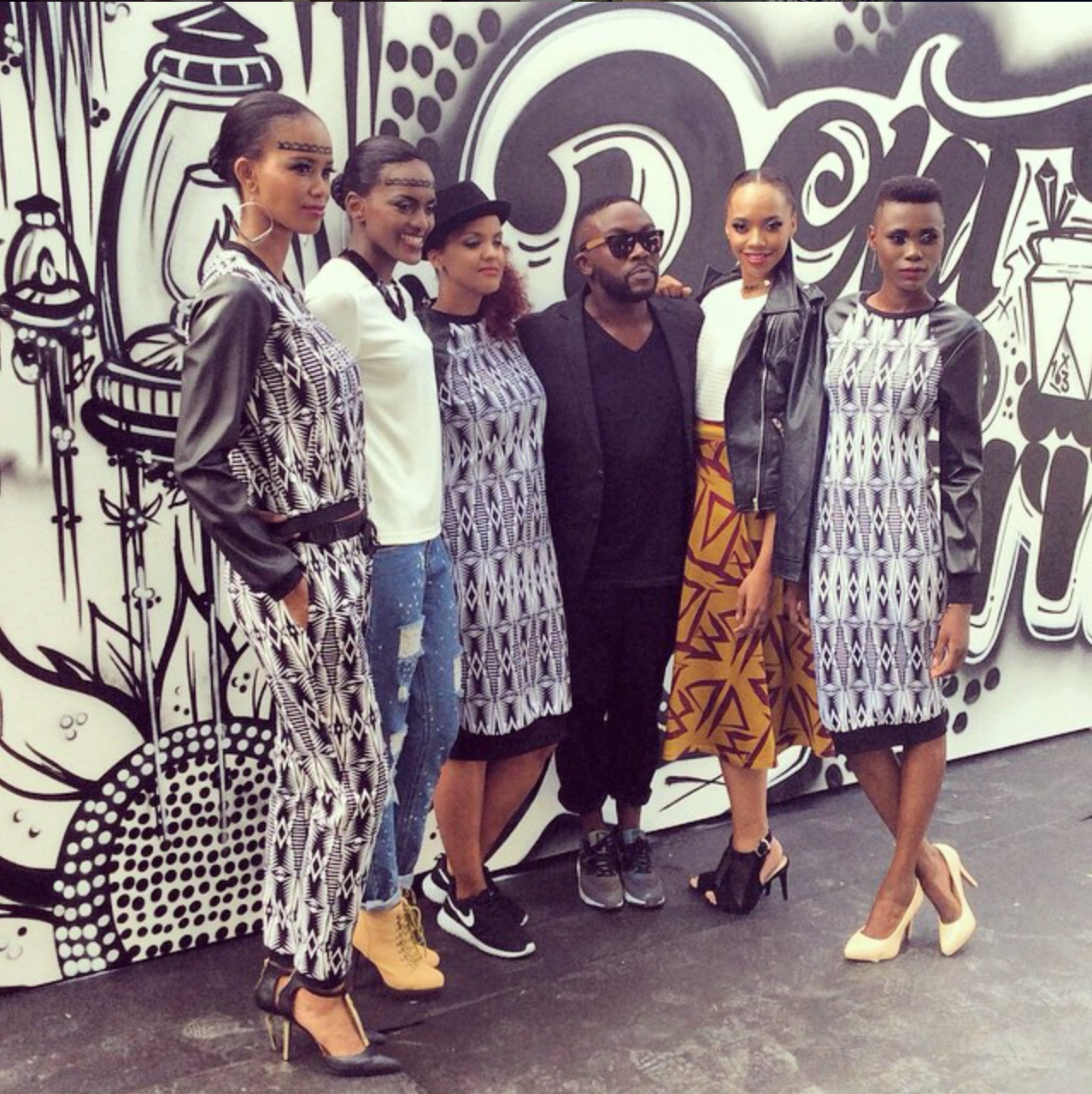
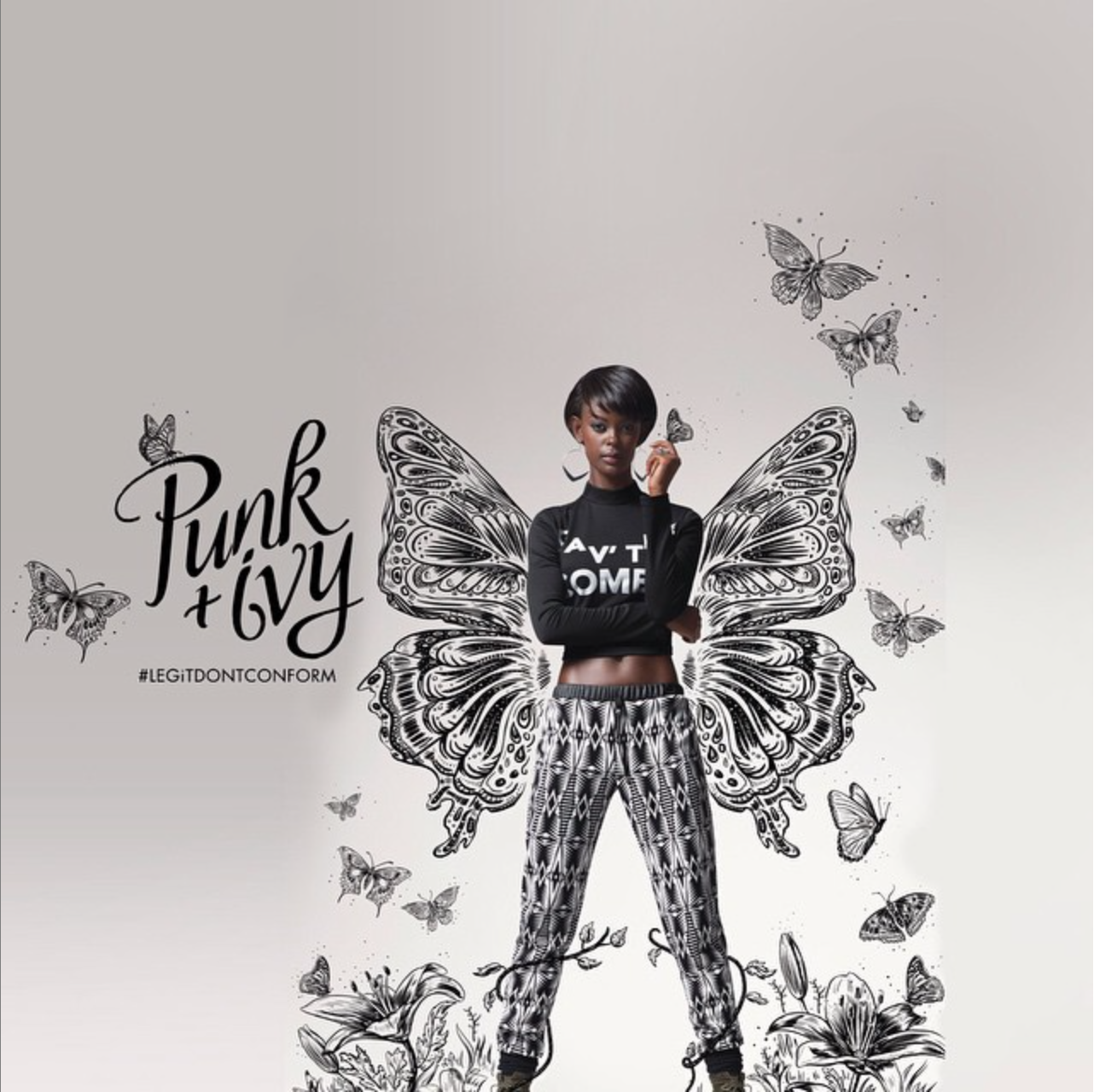
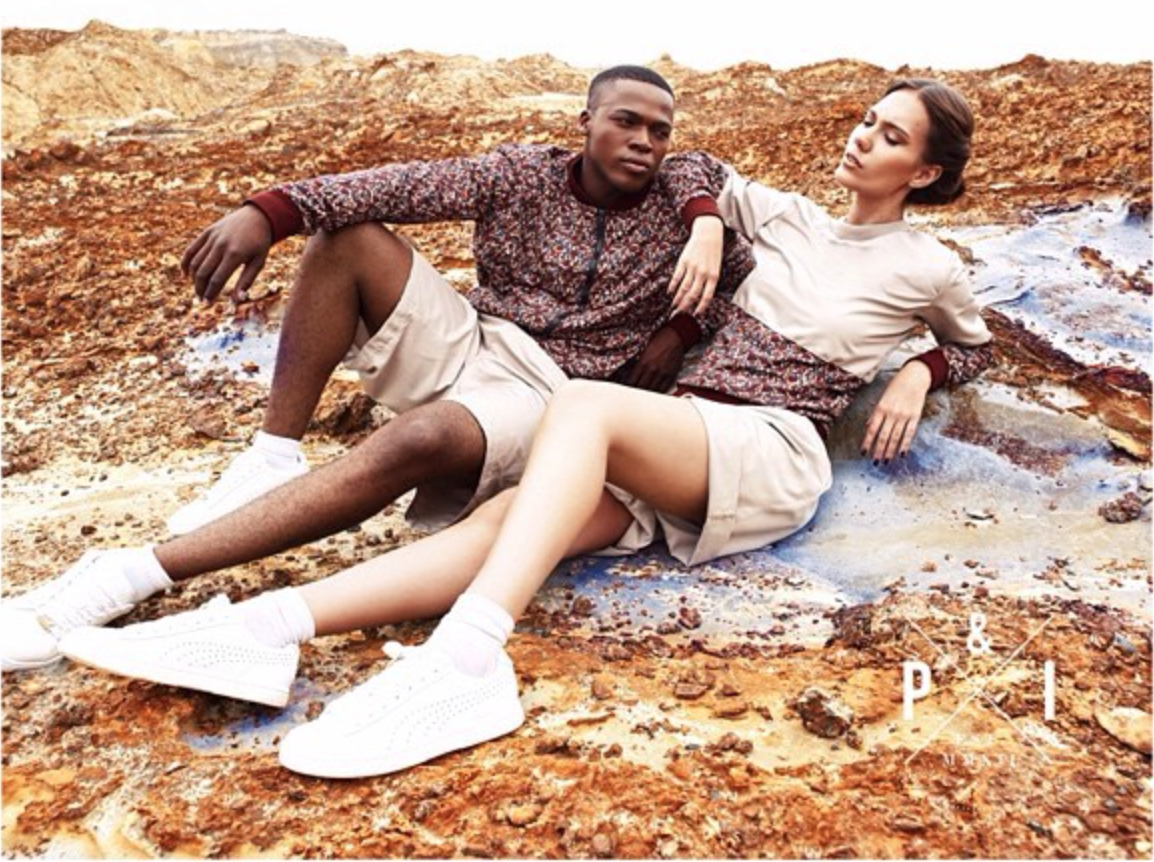
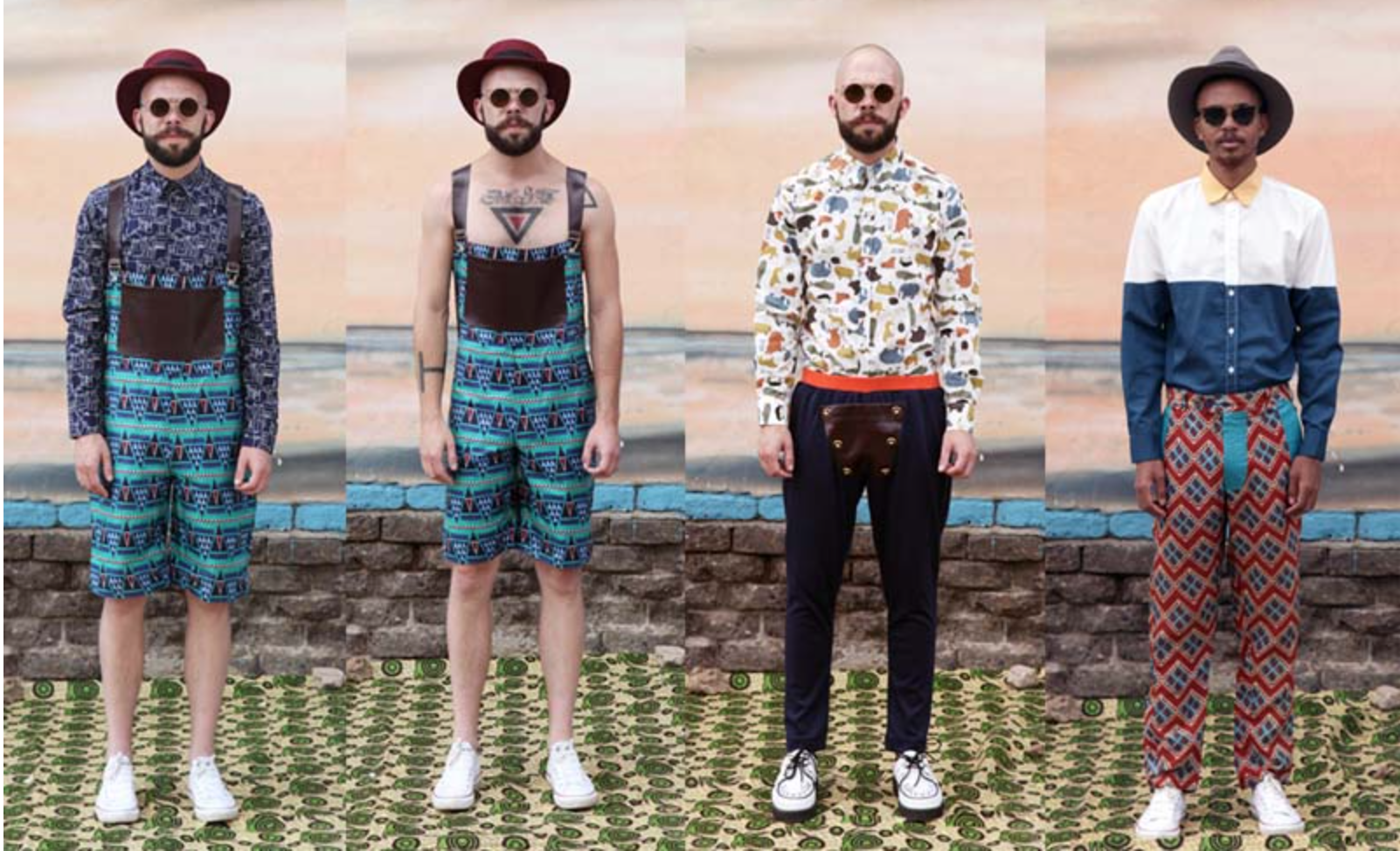
"We have a responsibility to push the crafts and the skills and the expertise that still exists here in South Africa, and across the continent, in terms of garment production, reviving the oldest craft traditions such as beading into garments, and leatherwork, and tannery, and weaving. This business allows us to tap into the old creative traditions that still exist in Africa, but yet bring a contemporary, fresh approach to how they are used in fashion."
How did you find those clients in the early days of the business?
Actually, they would find us in those early days. Thankfully, between myself and my husband we have quite decent connections in the media space, so a lot of musicians were our clients back then. Setting up the business in the first instance proved to be the easy part of the exercise, as was promoting our designs and garments online. But we knew that in terms of building greater awareness of the Punk and Ivy brand, we would have to take the next step into retail. We knew we didn't want to build a boutique, and after the trip to Bangkok we realised that if we created a mobile solution it would make perfect sense for us here in South Africa. A mobile retail solution would allow us to fill up the space with garments as we went along, whilst still offering the bespoke service at the same time. As a result, we created a mobile boutique (what we call a motique, a term we have actually trademarked in the meantime). So, the business started by making one off pieces up until the beginning of 2014, at which point we realised we needed to get the motique ready to hit the road. Then, life happened and I had a baby, and we found ourselves juggling so many projects at the same time. We were doing the bespoke tailoring and also at the same time producing garments for television commercial shoots. We also felt it would be good to position the Punk and Ivy brand in that space. Our expansion in the business world followed thereafter when we brought an investor on board, actually a family member, selling the idea of our unique motique concept to them. We created an entire presentation, pitched it to our potential investor, prepared a detailed business plan, and he bought the idea, and he is still part of the business today. This was fantastic for the business because we finally launched the motique in March 2015, having first had the retail concept for it back in 2012, and the Punk and Ivy collection and brand went on the road.
So, now the motique has been launched as the key business model differentiator for Punk and Ivy, how do you decide which venues to visit?
It is all about where large numbers of people are congregating at any one time, such as music events. They give us access to cool collectives around the city where we can simply rock up, park the Motique, and share what we are doing with Punk and Ivy in our very cool environment. We also do the pop up markets, concerts, big young parties taking place in the city with around 100 people in attendance, these are all great places for the Punk and Ivy motique to rock up and be part of the experience. Obviously, we track the huge air-truck and fashion truck culture in the US which is so exciting and just exploding right now, and we are replicating this in our own small way with the motique. For now, we only take motique around venues in Gauteng in the summer, and we head for Cape Town and Durban thereafter. Not only does this make sense from the perspective of getting our brand out there in different parts of the company, but we also take advantage of the opportunity to source new fabrics in each location. We also do a lot of business with the corporates because outside of the streetwear sports luxe stuff that we stock in the motique.
We also specialise in a lot of unique suiting for clients. That is a side of the business we have developed over the past two years as a means of generating income for the business as a whole. We go into people’s offices (our business partner was in the banking industry for the last ten to fifteen years and he would connect us with potential clients). We would dress him as our brand ambassador, and he would go to board meetings and go and meet with clients, and people would notice his suit and comment on it. Our suit designs have a unique Afrocentric design quality to them. Interestingly, all our bespoke work to date has been for men, and initially our design approach has been for the male market, but for our current collection we have made a very androgynous, unisex collection. There are pieces that both men and women can wear, and this makes sense when you think that the beginnings of Punk and Ivy came from the fact that I was wearing a lot of my husband’s clothes and designs, such as oversized shirts and blazers. So we thought this might be an interesting place to play in as a new brand.
We are also differentiating ourselves in the market by designing and making our own prints - we work with an incredible local designer, and he is given a detailed brief, colour palette and an outline of the shapes we want to work with, and he creates an incredible library of prints for us that we own together. We use these prints across any single garment we create. All the production of these fabrics, and indeed all the production work on all our garments is done in Johannesburg. Our pattern making is done by a woman-owned company here in the city, the grading is also done by a woman, and all the construction of the garments is done here too. It means we can personalise our fabrics and produce garments that have a unique Punk and Ivy personality.
"We knew we didn't want to build a boutique, and after the trip to Bangkok we realised that if we created a mobile solution it would make perfect sense for us here in South Africa. A mobile retail solution would allow us to fill up the space with garments as we went along, whilst still offering the bespoke service at the same time. As a result, we created a mobile boutique - what we call a motique, a term we have actually trademarked in the meantime."
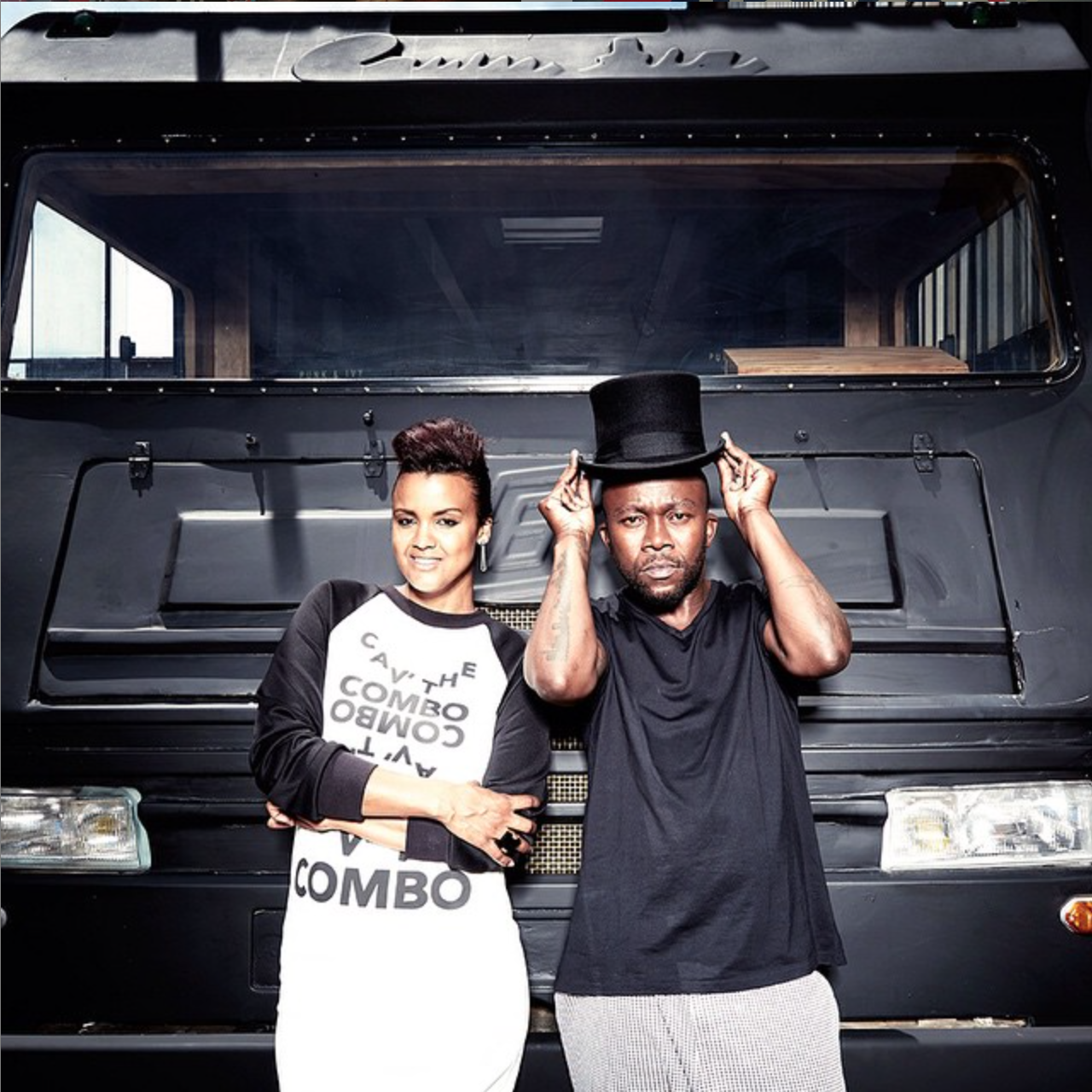
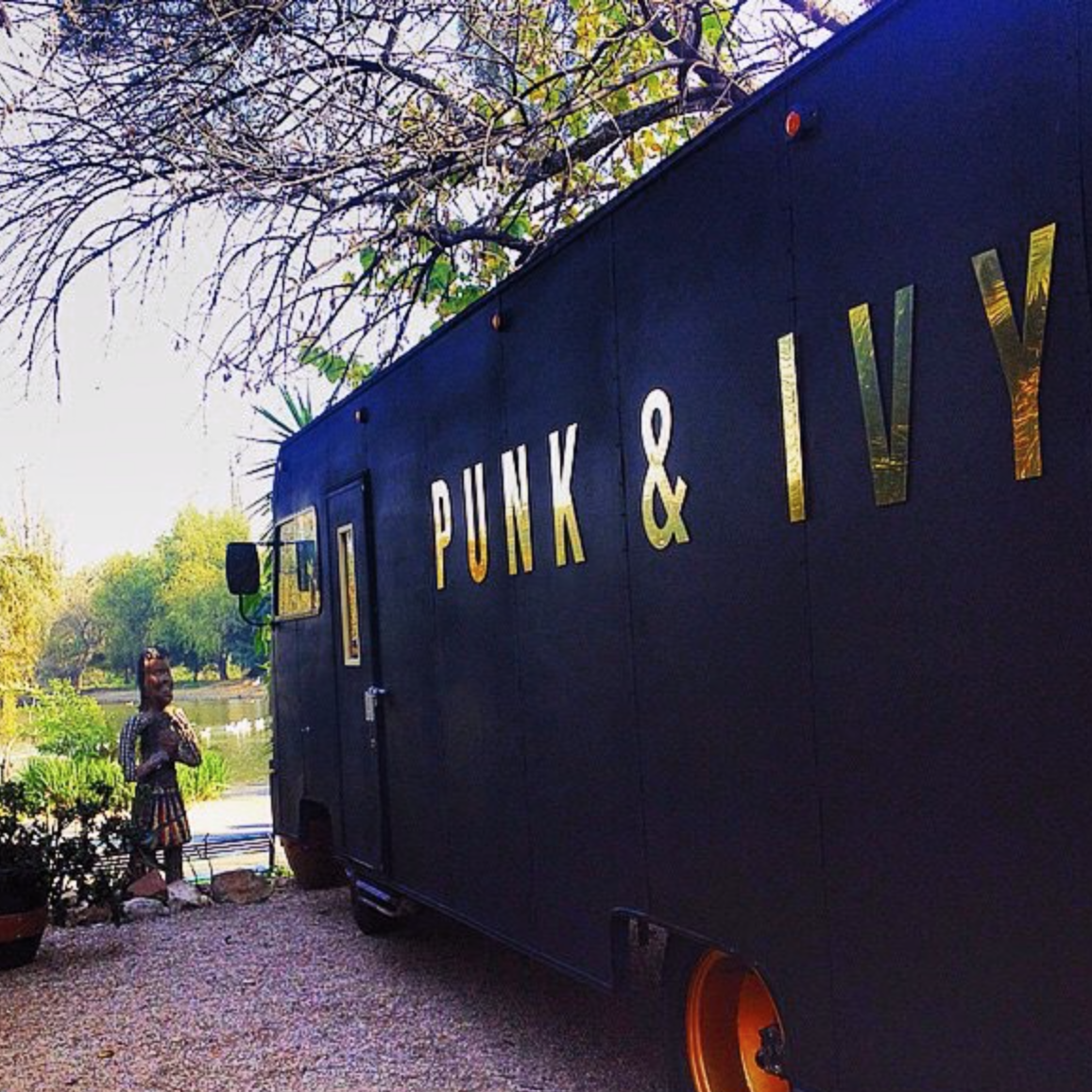
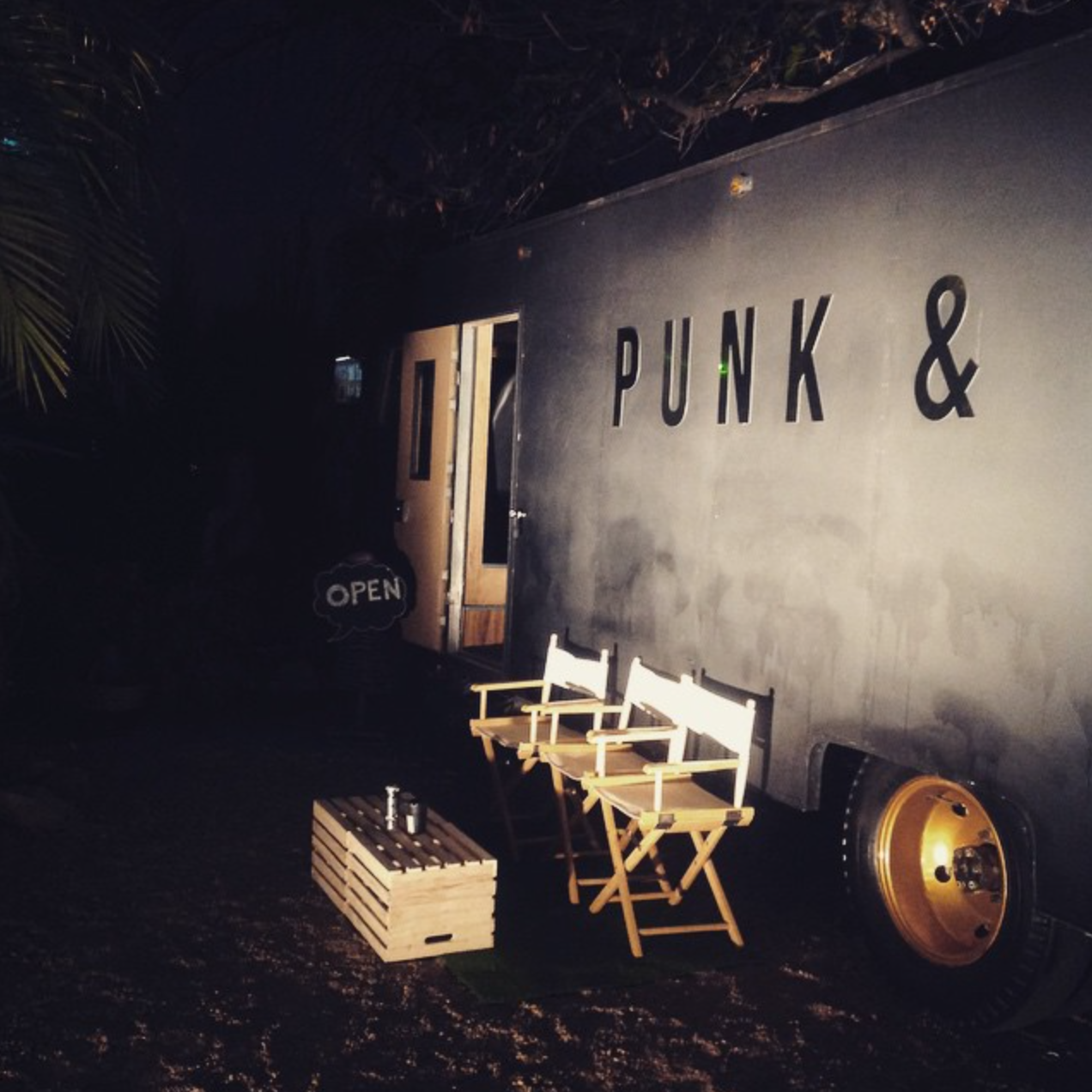
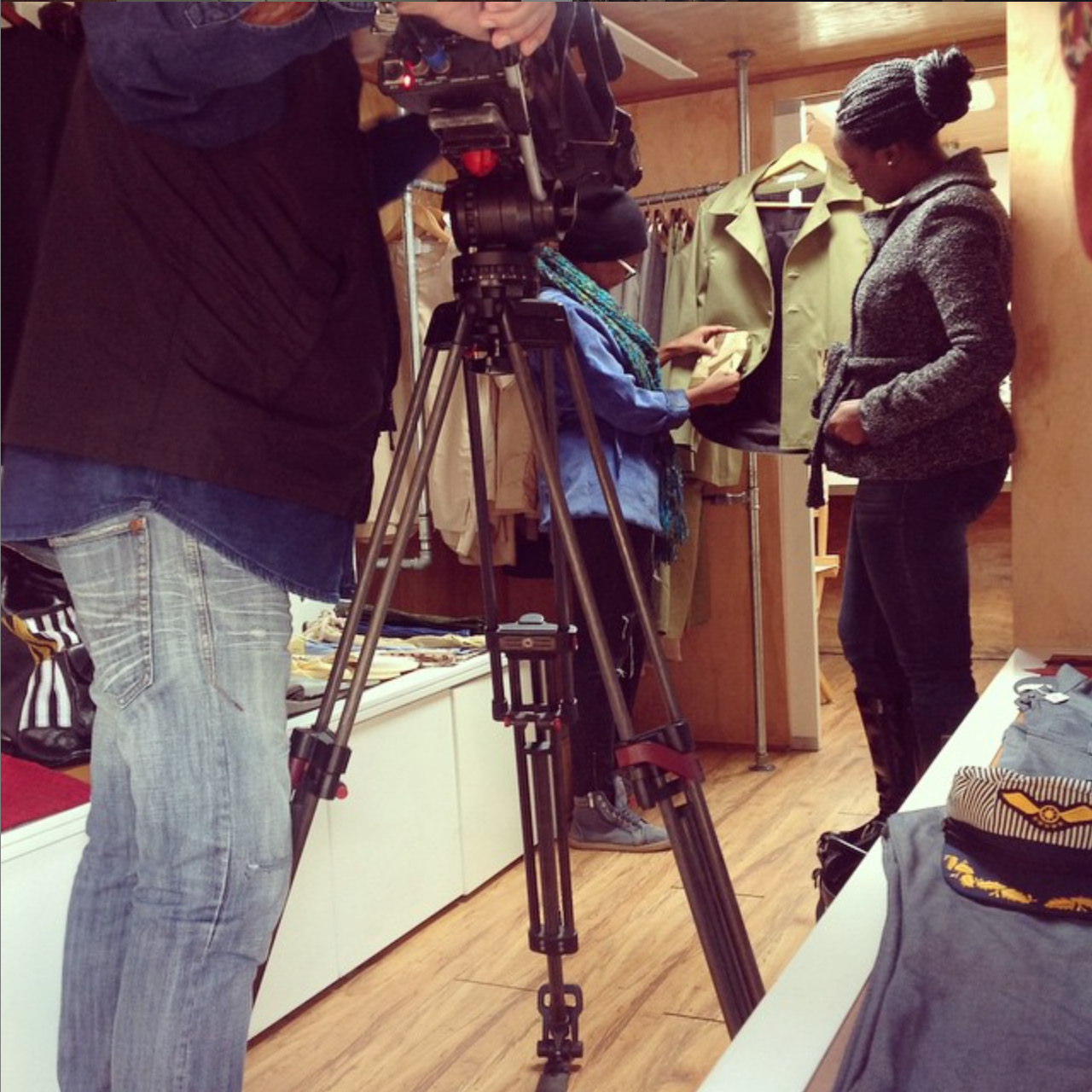
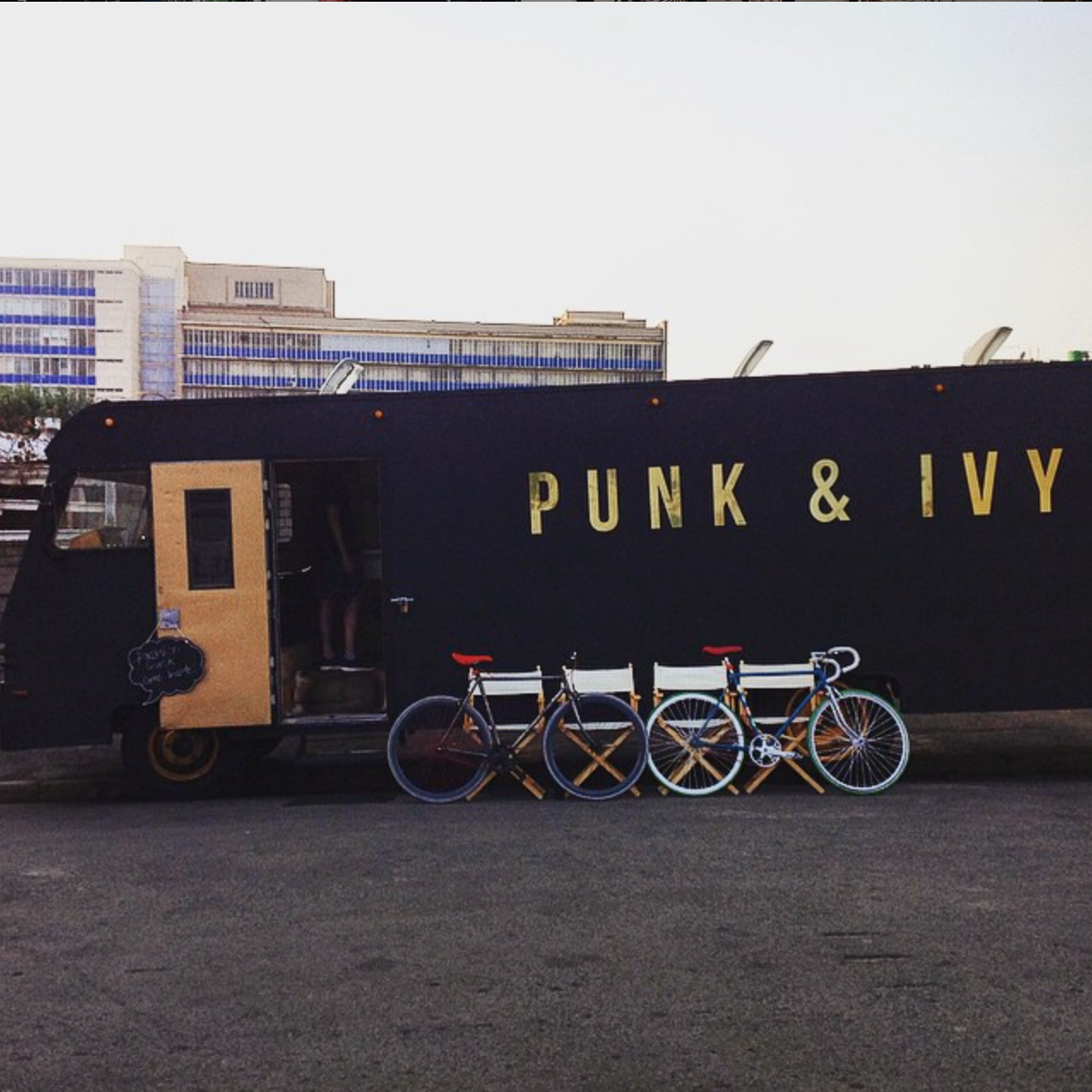
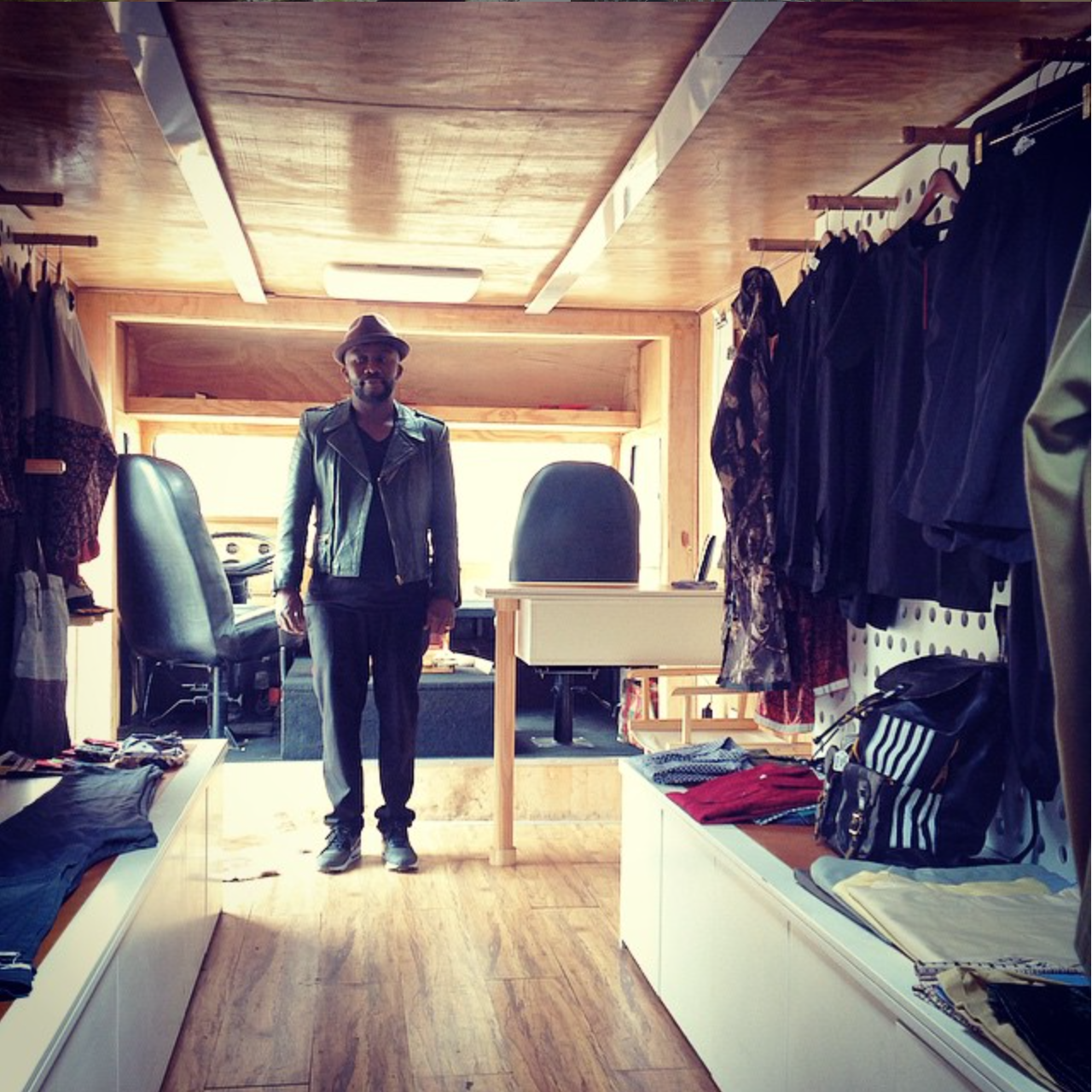
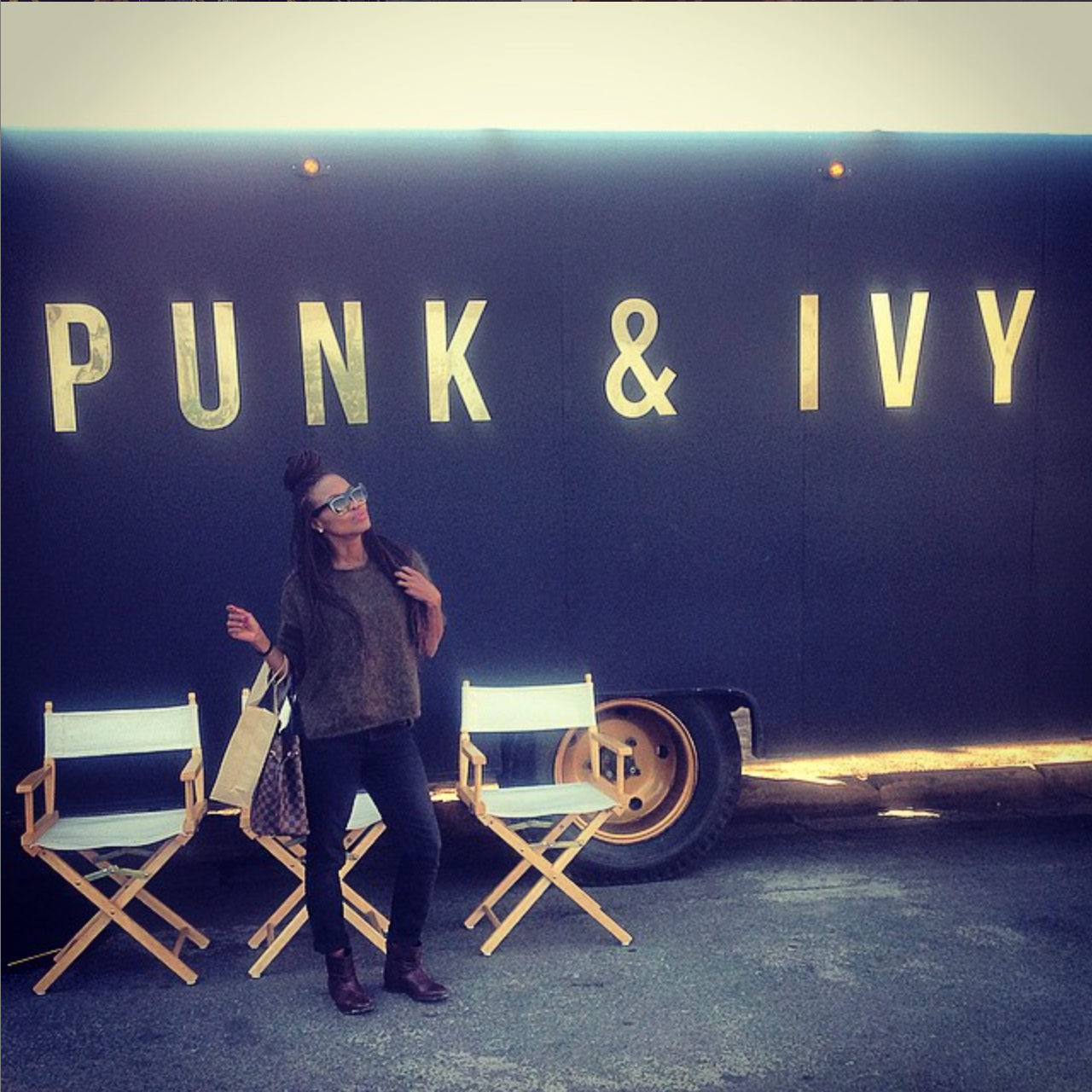
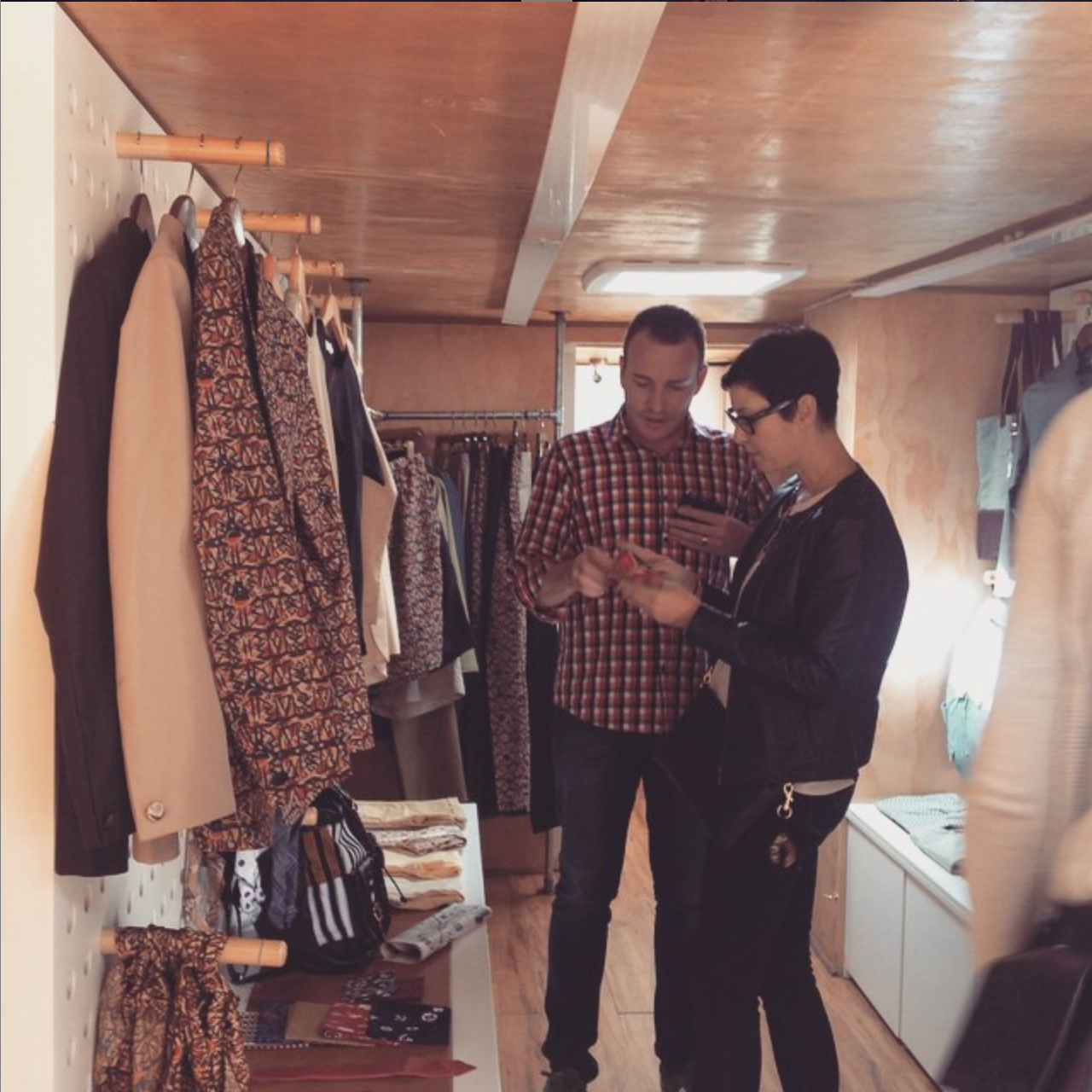
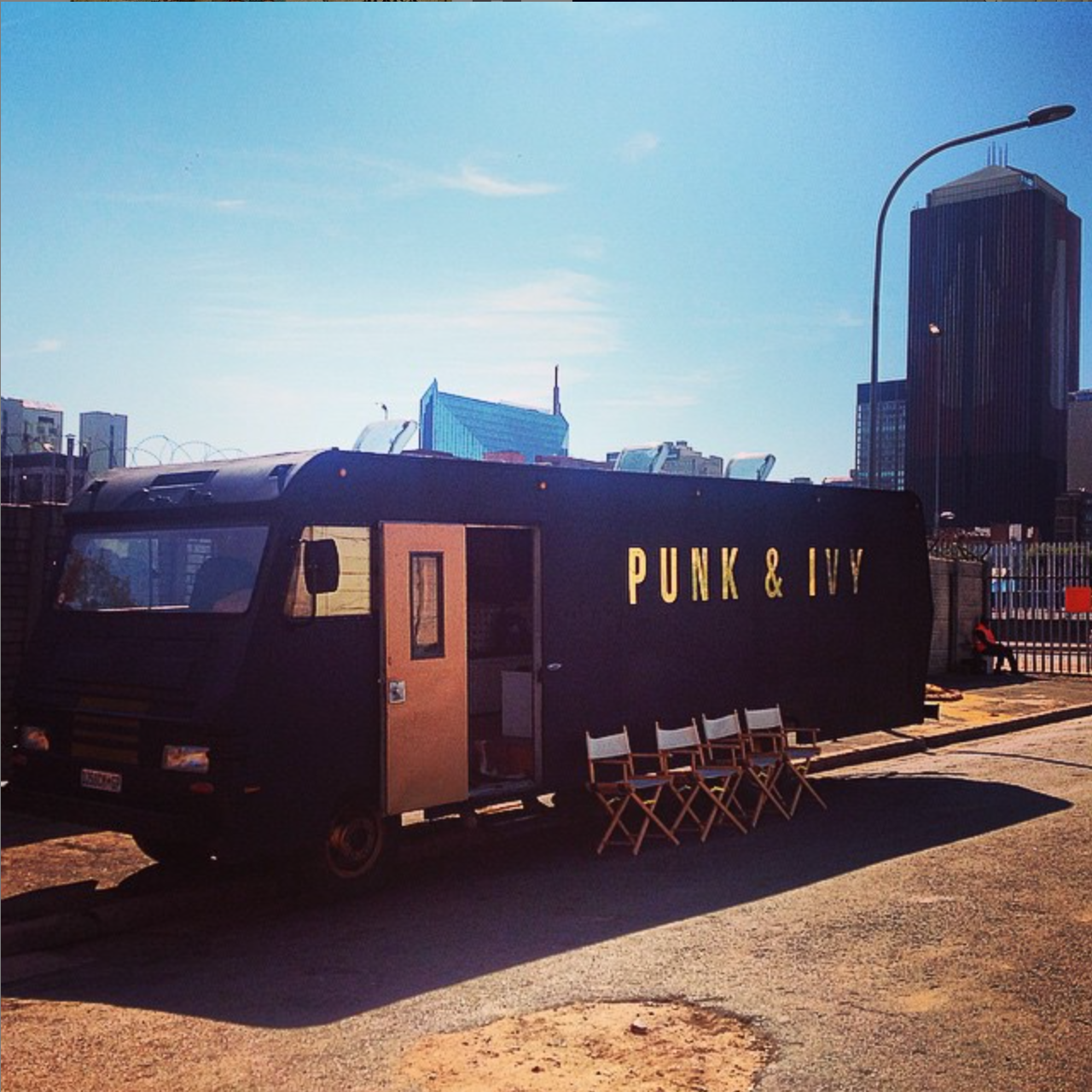
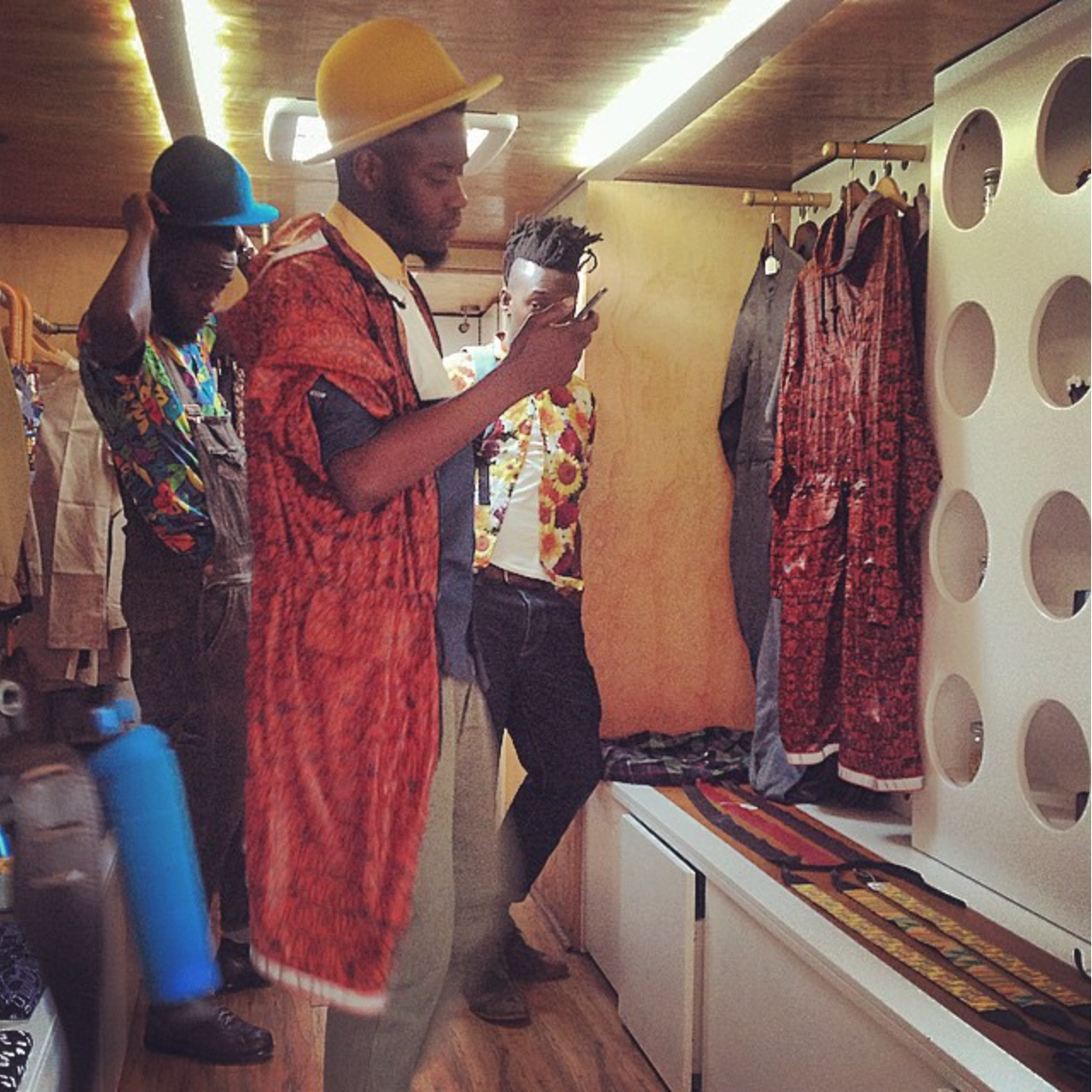
Tell us about what you are working on now in terms of collections.
We have put together a new 16 piece collection which is sports-luxe inspired, unisex and the whole idea behind it is to make really fun pieces that people can wear through a Joburg winter, which often has warm days, but cold evenings. For women, we have great shorts that you can wear with a pair of heels, an oversized blazer and a little vest. The same goes for the guys in the collection, we have great fitted pants inspired by the College Ivys. Actually, Punk and Ivy the name comes from two words used to describe how men used to dress in Soweto. There were the punks who were inspired by the Michael Jackson era of dress in the 80s and 90s - lots of jackets and leather, and snaky pants. Then there were the Ivys the guys who wore the platform shoes and the wide pants, and the blouses. So we took the inspiration for the name from these two definite styles, but wanting to find a unique point between the two places, creating individual pieces that pay homage to both style references. The Punk and Ivy brand is very much about looking back at where South Africa has come from from a design and fashion perspective, specifically in the black community. We are also conscious of pushing our Africanism through the prints we use and to create a definite identity, so the pieces that we have put together in the collection speak to both genders and those style references of the past. We have beautiful blazers, we are working with a lot of leather which is all locally sourced, the fabrics are sourced from Johannesburg too. We are trying to create a really proudly South African brand, but one that is also very Johannesburg in terms of its style and support for local craftspeople and producers.
What are the plans for expanding the Punk and Ivy brand and retail concept going forward?
The idea of the Motique is to get out there and meet with our customers, not just here in South Africa, but eventually across the continent. I would love to have Motiques in different locations in Africa, for example one in Lagos, one in Nairobi, one in Dar es Salaam, etc, and I think it opens up the floodgates for so many other designers to exploit this type of idea. After all, it is not a concept we are going to own solely for ever, but it also pushes the retail ideology we have at Punk and Ivy across the continent, as an alternative to the usual static retail fashion spaces that current exist. It forces you as a business owner to change your retail experience of how people come into your space and buy your goods.
We also have a responsibility to push the crafts and the skills and the expertise that still exist here in South Africa, and across the continent, in terms of garment production, reviving the oldest craft traditions such as beading into garments, and leatherwork, and tannery, and weaving. This business allows us to tap into the old creative traditions that still exist in Africa, but yet bring a contemporary, fresh approach to how they are used in fashion. Collaboration is the future of just about any industry sector here in Africa. Storytelling is also key, telling the back story of each product that is designed and produced using these amazing traditional crafts and craftsmanship in Africa.
"We need to keep fashion businesses here in the country alive and thriving, and that is why there is a new generation of entrepreneurs emerging in this sector looking to do exactly that. They understand the need to constantly invest in the country and in the fashion sector."
As a woman entrepreneur, what are the biggest challenges to any woman starting out in business in the fashion sector in Africa?
From a production perspective, it is a very male oriented industry sector in Africa. It puts you in a position where you have to negotiate around the pricing, and the control of production processes and quality of end product, which is key to ensuring that the product you have designed, actually meets your high quality expectations. I find that my conversations are challenged by the men who own the CMTs (Cut, Make and Trim facilities) and it has been incredibly frustrating for me to have to say to someone, I am paying you to deliver the product I want, and I have given you everything you need from me as a client to make that happen, and you still haven't delivered. So that has frustrated me considerably to the point that myself and my partner are now going to try and find funding to start a CMT in the next few months. This will allow me to then start managing my own production, and for me that is the biggest thing if I want to be able to deliver great quality products when I need them.
So, what is next for Punk and Ivy?
My target between now and the end of the winter is to set up a CMT and then hire between 4 to 6 women who can do all the stitchwork on my garments. There are a lot of women out there, particularly older women, who have incredible skills in areas like stitchwork that can be passed on to designers and producers like myself in this space. Also, I would like to see so many more women working in the fashion industry, in all aspects of it, as it is so male dominated.
In terms of the brand, I would like to see Punk and Ivy having a pan-African presence and see it expanding across the African continent. For me, it is about expanding what we are doing and spreading our design ideology throughout Africa. It is also about learning as designers what is happening across the continent, and seeing what is interesting and could be brought back into South Africa in terms of design and production inspiration. I also think it is important to try and change the landscape of garment production in Africa. We are at at point now where so many business in the production space are closing down because there isn't the demand necessarily, and 90% of the retailers that we buy from make all their products outside of the continent. For me as a South African, I think we need to mobilise far more of our creative economy, we need as a country to buy local and support local designers and manufacturers, whilst at the same time, promoting what makes South African culture and our identity so unique. We need to keep fashion businesses here in the country alive and thriving, and that is why there is a new generation of entrepreneurs emerging in this sector looking to do exactly that. They understand the need to constantly invest in the country and in the fashion sector.
"Money is not the most important thing in life, turning an idea into reality is much more important."
- Bianca Sibiya co-founder @PUNKANDIVY
What advice would you give to other young women entrepreneurs in Africa?
Firstly, you need to have a very clear idea of what you want to do, beyond the year that you are living in - that is really important. You need to be fearless in all aspects of your life and your business. You have to have great inner strength in order to build the essential negotiation skills you will need going forward, in order to package and sell your ideas.
You also need to understand and appreciate your cultural roots. It is important to fully embrace your Africanism, because if you don't appreciate where you have come from there is the temptation to dissolve your brand into something that the rest of the world is doing, and not celebrate what makes your brand so uniquely African. It is important to be true to yourself as an African, and let that Africanness define what you do and how you do it.
Money is not the most important thing in life, turning an idea into reality is much more important.
Contact or follow Punk and Ivy
WEBSITE | FACEBOOK | TWITTER | INSTAGRAM | EMAIL bianca@punlandivy.com
Why LoA loves it….
There is nothing better in the entrepreneurial world than seeing people doing things differently, breaking the mould, pushing the envelope, trying new ways of doing things - Punk and Ivy is one fashion design and retail brand that is doing just that. Bianca and Khaya, the inspiration behind this innovative and proudly South African fashion brand, are showing everyone else on the continent that different is good and that retail does not have to be a static concept. They are taking their fabulous brand directly to their customer base, and presenting their products and designs in a way that connects them at a more meaningful level. Punk and Ivy is not just a great fashion brand, it is a lifestyle and a new way of thinking - and at LoA, we just love it. --- Melanie Hawken, founder and editor-in-chief of Lionesses of Africa








